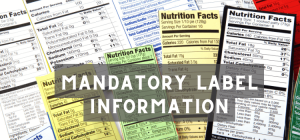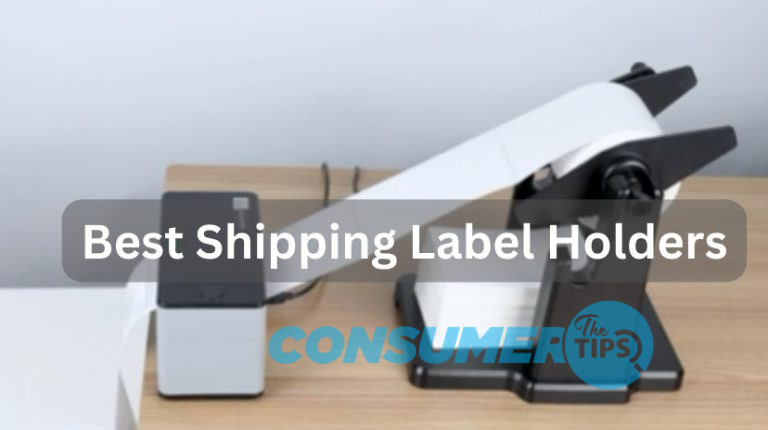What Needs to be on a Product Label: A Comprehensive Guide
Product labels play a crucial role in the success of any business. They provide essential information about the product to the customers, helping them make informed decisions.
Therefore, it is essential to ensure that product labels are accurate, clear, and comply with the regulations set by the governing bodies.
This article aims to provide a comprehensive guide on what needs to be on a product label.
What Needs to be on a Product Label?
Product labeling is a critical aspect of any business that sells products. A well-designed label can help attract customers and increase sales, while a poorly designed label can turn customers away.
In this article, we will discuss the importance of product labeling, the legal requirements for product labeling, and what information should be included on a product label.
Importance of Product Labeling
Product labeling is essential for several reasons. Firstly, it provides information about the product to the customer, including the product’s name, quantity, ingredients, and nutritional information.
This information helps the customer make informed decisions about whether or not to purchase the product.
Additionally, a well-designed label can help differentiate a product from its competitors and increase sales.
Legal Requirements for Product Labeling
There are several legal requirements for product labeling that businesses must comply with. These requirements may vary depending on the country and the type of product being sold.
However, there are some general guidelines that apply to most products.

Mandatory Label Information
The following information must be included on a product label:
Product Name
The name of the product should be prominently displayed on the label. The name should accurately describe the product and be easy to read.
Quantity
The quantity of the product should be clearly stated on the label. This information is important for customers to know how much product they are purchasing.
Ingredients
The ingredients used in the product should be listed in descending order of weight. This information is essential for customers who have allergies or dietary restrictions.
Allergens
If the product contains any of the eight major allergens (milk, eggs, fish, shellfish, tree nuts, peanuts, wheat, and soy), they must be listed on the label.
Nutritional Information
The nutritional information, including the calories, fat, sodium, and sugar content, must be included on the label.
Instructions for Use
If the product requires specific instructions for use, they must be included on the label.
Manufacturer Information
The name and address of the manufacturer or distributor of the product must be included on the label.
Expiration Date
If the product has an expiration date, it must be clearly stated on the label.
Optional Label Information
While the above information is mandatory, there is also optional information that businesses can include on their product labels:
Product Claims
Product claims, such as “all-natural” or “organic,” can help differentiate a product from its competitors and increase sales.
However, businesses must be careful when making these claims, as they may be subject to legal regulations.
Certifications and Awards
If a product has been certified by a third-party organization or has won an award, this information can be included on the label to build trust and credibility with customers.
Branding Information
Including branding information, such as the business name and logo, can help increase brand recognition and customer loyalty.
Customer Reviews
Including customer reviews or ratings on the product, label can help build trust with potential customers and increase sales.
Label Design and Layout
In addition to the information included on the label, the design, and layout of the label are also important. A well-designed label should be eye-catching, easy to read, and accurately reflect the brand and product. It should also comply with any legal requirements for labeling.
Conclusion
In conclusion, product labeling is a critical aspect of any business that sells products. It provides essential information to customers, helps differentiate products from competitors, and ensures compliance with legal requirements.
By including mandatory information such as the product name, quantity, ingredients, allergens, nutritional information, instructions for use, manufacturer information, and expiration date, and optional information such as product claims, certifications and awards, branding information, and customer reviews, businesses can create effective and informative product labels that help increase sales and build customer loyalty.
FAQs
What happens if a business does not comply with legal requirements for product labeling?
Businesses that do not comply with legal requirements for product labeling may face fines or legal action.
Do all products require a label?
In general, all products require a label. However, there may be exceptions for certain types of products.
Can businesses include product claims on their labels?
Yes, businesses can include product claims on their labels. However, they must ensure that these claims are accurate and comply with legal regulations.
Is it necessary to include customer reviews on a product label?
No, it is not necessary to include customer reviews on a product label. However, it can help build trust and credibility with potential customers.
What should businesses consider when designing their product labels?
Businesses should consider factors such as the information that needs to be included on the label, legal requirements for labeling, the brand and product identity, and the target audience when designing their product labels.






